|
|
|
|
|
Season’s greetings from the IPSI Secretariat in Tokyo, Japan!
|
We wanted to take a moment to thank you for your ongoing support and cooperation. This year was a significant milestone for IPSI. After many years of not being able to gather, we finally had the opportunity to see so many IPSI members come together at the Ninth IPSI Global Conference (IPSI-9) held in July in Akita, Japan. It was a wonderful experience!
|
One of the key outcomes of IPSI-9 was the adoption of a new Strategy and Plan of Action for the period 2023-2030. This plan outlines five strategic objectives that will guide IPSI's work in the coming years, fostering a collaborative approach to addressing biodiversity loss, climate change, and sustainable development.
|
We look forward to implementing the new IPSI Strategy and Plan of Action in collaboration with all IPSI members and friends.
|
As always, please feel free to contact us if you have any questions or comments, or if you'd like to submit any new case studies or news about your activities.
|
|
We wish you a Happy New Year!
|
|
- Open Call for abstracts for the Satoyama Initiative Thematic Review Vol. 10
- Thematic Track at ISAP 2023
- IPSI at COP28
- Publication on resilient and diverse planted forests
- Case study on rehabilitating local wetlands and reinvigorating local culture via pheasant-tailed jacana conservation
|
|
|
|
|
|
|
Call for Abstracts for the Satoyama Initiative Thematic Review Volume 10
|
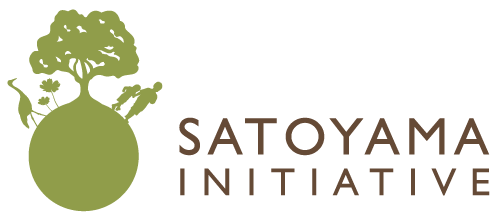
|
|
The United Nations University Institute for the Advanced Study of Sustainability (UNU-IAS) is pleased to announce a call for papers for the tenth volume of the Satoyama Initiative Thematic Review book series. The tenth volume will feature the theme “Ensuring ecological connectivity in socio-ecological production landscapes and seascapes (SEPLS)”. We invite authors from IPSI member organisations who have case studies relevant to this theme, to submit a manuscript following the guidance provided in the Call for Papers.
|
|
|
About the Satoyama Initiative Thematic Review
|
|
|
The Satoyama Initiative Thematic Review is a compilation of case studies providing useful knowledge and lessons focused on a specific theme related to “socio-ecological production landscapes and seascapes (SEPLS)”. The overall aim is to collect practical experiences and relevant knowledge built from on-the-ground management activities and contribute to policy recommendations. Each volume also includes a synthesis chapter clarifying the volume’s relevance to policy and academic discussions to encourage the application of lessons learned in the field. Like the last four volumes, Volume 10 will be published by Springer.
|
|
|
The Satoyama Initiative Thematic Review Vol. 10
|
|
This volume will focus on the relevance of SEPLS to aspects of ecological connectivity and integrated biodiversity-inclusive spatial planning. Cases to be included in the volume may highlight the roles, attitudes, motivations, and actions of multiple stakeholders, including smallholders, Indigenous Peoples and local communities, and others in ensuring and enhancing quality of ecological connectivity through their work in SEPLS. They are also expected to provide insights on how the SEPLS management efforts can contribute to the relevant local, national and global policymaking and implementation through operationalizing ecological connectivity in spatial planning and management in a more effective, sustainable and equitable manner. Furthermore, it is intended to offer useful knowledge and information for the projected IPBES ecological connectivity assessment, while feeding into the implementation of the new IPSI Strategy and Plan of Action for 2023-2030, particularly one of its five strategic objectives, namely “Area-Based Conservation Measures”.
|
|
For the past volumes of the SITR, please see here.
|
|
|
|
|
|
|
|
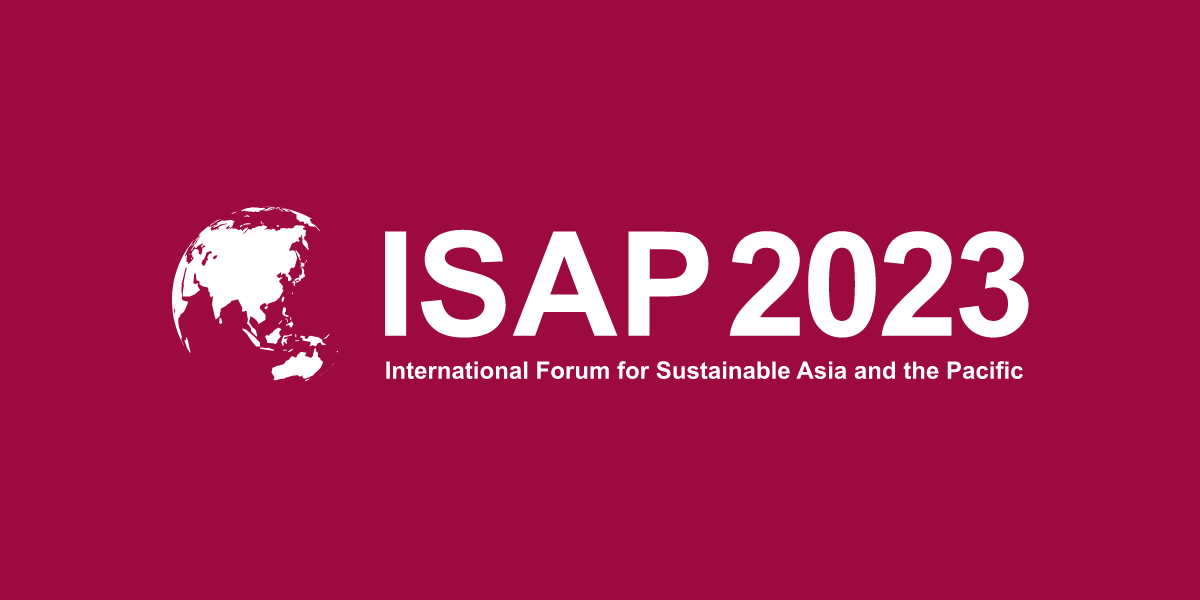
|
ISAP 2023: SEPLS Management as Integrated, Inclusive and Localised Actions towards a Nature Positive Society
|
|
|
|
|
|
|
|
|
IPSI at the Climate Change Conference
|
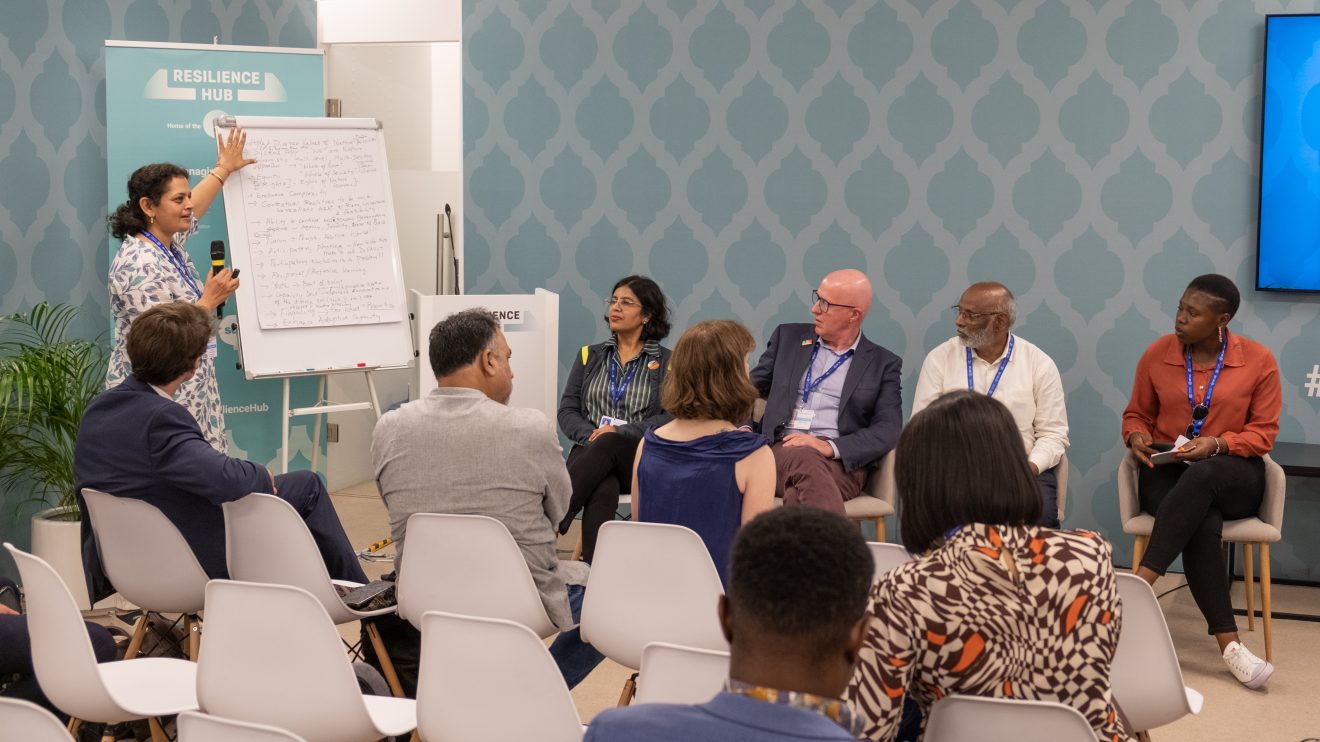
|
The 2023 UN Climate Change Conference (COP28) convened from 30 November to 12 December in Dubai, United Arab Emirates. The IPSI Secretariat and many IPSI members participated in a series of events to advocate the importance of socio-ecological landscapes and seascapes not only for localized sustainable development and biodiversity conservation but their role in climate change mitigation and socio-ecological resilience.
|
The IPSI Secretariat co-hosted the following event:
|
- From Reaction to Socio-Ecological Resilience: Advancing Disaster Risk Reduction and Ecosystem Restoration Nexus for Climate Adaptation
On 8 December 2023, the IPSI Secretariat co-organized an event focused on collaboration to build and improve socio-ecological resilience. The event took place at the Resilience Hub and included an interactive session where audience members could share their experiences on socio-ecological resilience.
|
|
You can read more about the event here or watch the recording.
|
|
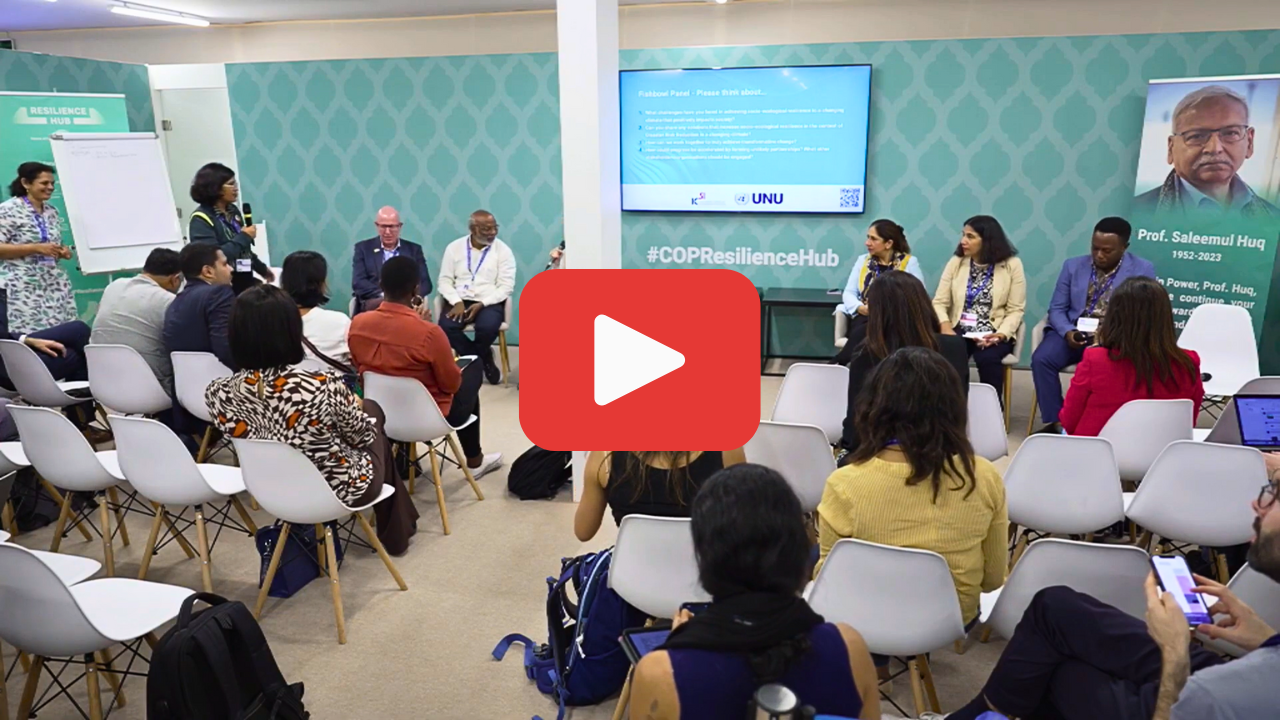
|
|
|
|
|
|
|
Unasylva 254: Towards more resilient and diverse planted forests
|
|
|
Well designed and sustainably managed planted forests have a vital role to play in meeting Sustainable Development Goals. This Unasylva presents novel findings and state-of-the-art information on planted forests. These forests support livelihoods - including through timber production - while also providing ecosystem services, restoring degraded ecosystems, and adapting to and mitigating climate change.
|
|
Unasylva is FAO's journal of forestry and forest industries. Its goal is to bring globally significant developments in forestry to a broad range of readers - such as policy-makers, forest managers, technicians, researchers, students and teachers.
|
|
|
|
|
|
|
|
Rehabilitating Local Wetlands and Reinvigorating Local Culture Via Pheasant-tailed Jacana Conservation in Meinong, Kaohsiung City
|
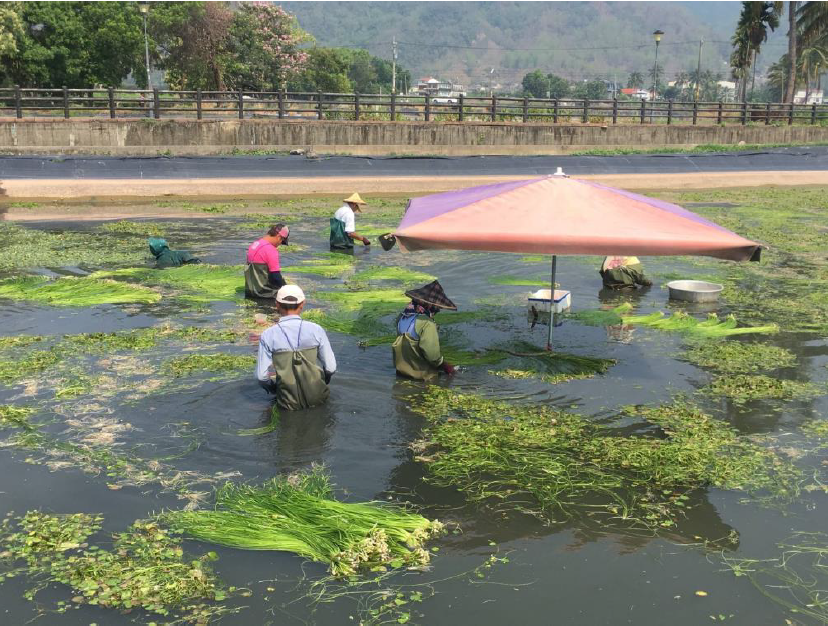
|
White Water Snowflake Cultivation in Meinong. July 2021 Kaohsiung Wild Bird Society
|
Recent case study submitted by the Taiwan Wild Bird Federation.
|
|
Embark on a journey of environmental rejuvenation and cultural revival in Meinong, Kaohsiung City, where the restoration of local wetlands and the conservation of the Pheasant-Tailed Jacana have become intertwined. This captivating case study unfolds the narrative of a community-driven initiative that not only safeguards the fragile wetland ecosystem but also reconnects locals with their cultural roots. Explore how Meinong's commitment to conservation not only protects endangered bird species but also preserves and celebrates the rich tapestry of local traditions. Immerse yourself in the story of a community that has successfully harmonized nature and culture, showcasing the power of collective action for a sustainable future. Read the full case study for an uplifting tale of resilience and coexistence.
|
|
|
|
|
|
|
|
|

|
Let us know if there are any changes in your e-mail address or contact information.
Secretariat of the International Partnership for the Satoyama Initiative
United Nations University Institute for the Advanced Study of Sustainability (UNU-IAS)
5–53–70 Jingumae
Shibuya-ku, Tokyo 150-8925
Japan
Tel: +81 3-5467-1212
Fax: +81 3-3499-2828
Email: isi@unu.edu
If you have been forwarded this newsletter and would like to SUBSCRIBE, you can do so on the IPSI website here.
|
   
|
|
|
|
The activities of the IPSI Secretariat are made possible through the financial contribution of the Ministry of Environment, Government of Japan
|
|
|
|
|
|
|
|